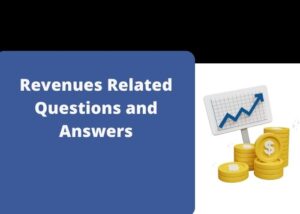1. What is business planning?
A: Business planning is the process of developing strategies, setting goals, and outlining actions to achieve a desired result. It is an important component of starting a business and serves as a roadmap for success.
2. What are the benefits of business planning in startups?
A: Business planning in startups can help entrepreneurs define their objectives, identify potential risks and opportunities, develop strategies to achieve goals, and secure financial resources. It also helps entrepreneurs to focus on the critical success factors for their business, create a plan for success, and develop a competitive advantage over their competitors.
3. What are the steps involved in business planning?
A: The steps involved in business planning include researching the market, setting goals and objectives, defining strategies, creating a budget, and developing a plan of action.
4. What are the components of a business plan?
A: The components of a business plan typically include an executive summary, a business description, a market analysis, a competitive analysis, a marketing plan, an operations plan, a financial plan, and an organizational structure.
5. What is the purpose of a business plan?
A: The purpose of a business plan is to provide a roadmap for the entrepreneur to follow and to serve as a guide for decision making. It should also provide potential investors with information about the business and its potential for success.
6. What are the key elements of a successful business plan?
A: The key elements of a successful business plan include a clear statement of purpose, detailed financial information, a competitive analysis, and a marketing plan.
7. What is the difference between a business plan and a business model?
A: A business plan is a document that outlines the goals and objectives of a business. It also includes strategies, budgets, and plans of action. A business model is a representation of how the business will generate revenue and profits.
8. How do you write a business plan?
A: Writing a business plan involves researching the market, setting goals and objectives, defining strategies, creating a budget, and developing a plan of action.
9. What are the most important sections of a business plan?
A: The most important sections of a business plan include an executive summary, a business description, a market analysis, a competitive analysis, a marketing plan, an operations plan, a financial plan, and an organizational structure.
10. What should be included in the executive summary of a business plan?
A: The executive summary of a business plan should include an overview of the business, the goals and objectives, the strategies and plans, and the budget.
11. What is the difference between a business plan and a business strategy?
A: A business plan is a document that outlines the goals and objectives of a business. A business strategy is an overall plan of action that outlines how a business will achieve its goals and objectives.
12. How can a business plan help secure financing?
A: A business plan can help secure financing by providing potential investors with information about the business and its potential for success. It should also demonstrate the financial stability of the business and provide a roadmap for the future.
13. What is the difference between a business plan and a feasibility study?
A: A business plan is a document that outlines the goals and objectives of a business. A feasibility study is a research and analysis process that helps an entrepreneur determine whether or not a business idea is viable.
14. What should be included in a market analysis?
A: A market analysis should include an examination of the target market, the competitive environment, and the potential for success.
15. What are the key elements of a competitive analysis?
A: The key elements of a competitive analysis include an examination of the competitors, their strategies, and the strengths and weaknesses of the business in comparison to its competitors.
16. What should be included in a financial plan?
A: A financial plan should include an analysis of the current financial position of the business, a budget, and a cash flow forecast.
17. What are the steps to creating a marketing plan?
A: The steps to creating a marketing plan include researching the target market, assessing the competitive environment, defining the marketing objectives, developing strategies, and creating a budget.
18. What are the key elements of a successful operational plan?
A: The key elements of a successful operational plan include a description of the operations, a plan to achieve the objectives, and a budget.
19. What is the importance of a business plan in the startup process?
A: A business plan is an important component of the startup process as it serves as a roadmap for success. It helps entrepreneurs define their objectives, identify potential risks and opportunities, develop strategies to achieve goals, and secure financial resources.
20. How can a business plan help an entrepreneur stay organized?
A: A business plan can help an entrepreneur stay organized by providing a framework for decision making. It can also help entrepreneurs to focus on the critical success factors for their business, create a plan for success, and develop a competitive advantage over their competitors.
21. What is the difference between a business plan and an operational plan?
A: A business plan is a document that outlines the goals and objectives of a business. An operational plan is a plan for how to achieve the goals and objectives outlined in the business plan.
22. What are the advantages and disadvantages of using a business plan template?
A: One advantage of using a business plan template is that it can help entrepreneurs to quickly and easily create a plan. The disadvantages include that they may not be customized to fit the specific business and they may not provide enough detail.
23. What is the purpose of a cash flow forecast?
A: The purpose of a cash flow forecast is to help an entrepreneur to understand the financial position of the business and to plan for future expenses.
24. What are the benefits of developing a financial plan?
A: The benefits of developing a financial plan include helping to identify potential sources of capital, determining the current financial position of the business, and planning for future expenses.
25. What is the difference between a business plan and a business proposal?
A: A business plan is a document that outlines the goals and objectives of a business. A business proposal is a written document that is used to solicit funds from potential investors.
26. What are the advantages of using a business plan software?
A: The advantages of using a business plan software include that it can help entrepreneurs to quickly and easily create a plan, customize it to fit their business needs, and provide detailed information.
27. What are the common mistakes to avoid when writing a business plan?
A: Common mistakes to avoid when writing a business plan include not having a clear statement of purpose, not providing enough detail, not being realistic, not researching the market, and not having a competitive analysis.
28. What is the difference between a business plan and a business pitch?
A: A business plan is a document that outlines the goals and objectives of a business. A business pitch is a short presentation used to present the business and its potential for success to potential investors.
29. What should be included in an operations plan?
A: An operations plan should include a description of the operations, a plan to achieve the objectives, and a budget.
30. What is the importance of an organizational structure in a business plan?
A: An organizational structure is important in a business plan as it helps to define roles and responsibilities, create accountability, and ensure that the business is operating efficiently.




